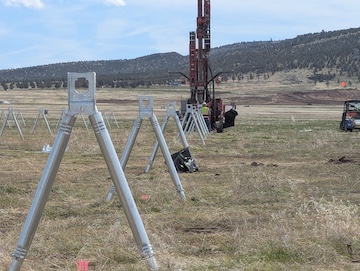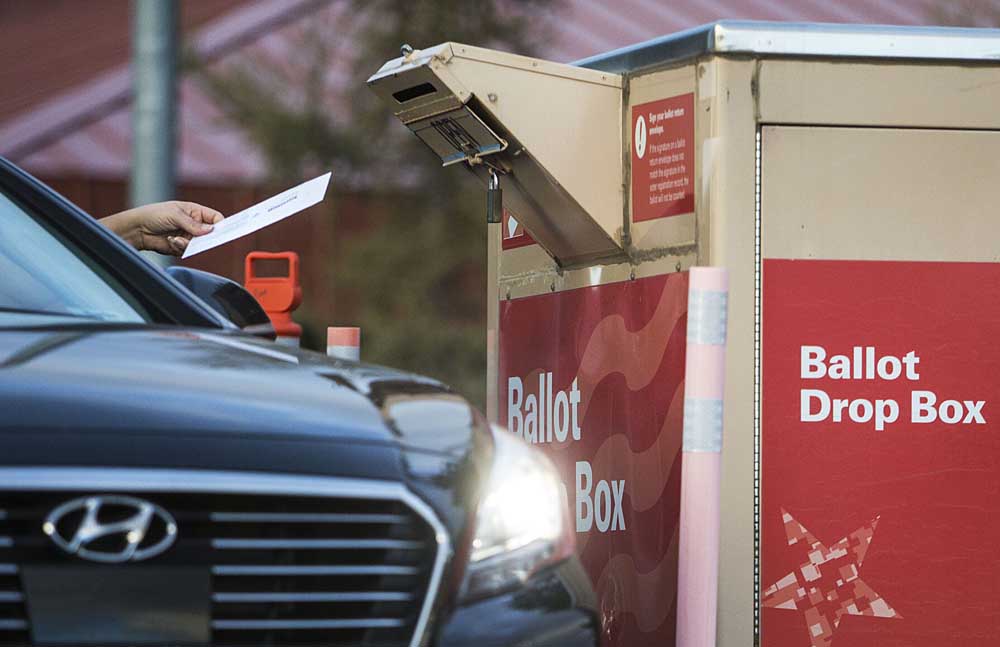Vertrees: Worth the trek to Cowboy Dinner Tree
Published 9:00 am Tuesday, August 8, 2023

- Carl Vertrees
Would you drive 100 miles to an eclectic restaurant out in the middle of nowhere knowing it served only two entrees and no alcoholic beverages?
That’s not exactly how I would recommend writing the advertisement for the Cowboy Dinner Tree, five miles south of Silver Lake in Lake County, Oregon, halfway between La Pine and Paisley.
The Cowboy Dinner Tree has been serving barbecued steak and chicken for more than 30 years. Your choices are a 26 to 30 oz. cowboy cut of top sirloin or a whole roasted chicken. Experienced diners know to bring a cooler for the leftovers unless they have an unusually big appetite.
Reservations are required, and family-style seating is offered every 30 minutes from 4 to 7:30 p.m. The meal begins with a beverage, a choice of coffee, iced tea or pink lemonade; followed by a bottomless green salad with homemade dressings and fresh-baked yeast rolls. An equally generous hearty soup — ours was a tasty bean soup — precedes the entrees.
When the server brings the entrees, the oohs and awes begin, because of the overwhelming quantity. It’s accompanied by a large baked potato. But you need to save room for dessert, always a berry shortcake.
The décor is simple and utilitarian, most of the tables have bases constructed with horseshoes. Western paraphernalia adorns the walls, and dollar bills and other currency are stuffed here and there throughout the restaurant. The staff is cheerful and efficient. Our server lives in Christmas Valley, about 25 miles north.
Jamie and Angel Roscoe bought the restaurant from her parents in 2012, and their six children help them run the outback attraction which also includes three cabins for overnight stays. Jamie has begun raising their own sustainable beef on the acreage.
Reservations are required, and payments must be in cash for the $45 meal. This time of year the restaurant is open Thursday through Sunday, whereas in December and January it is open only on Saturdays. The restaurant is open two or three days other times of the year.
The website explains the roots of the business: “In generations past, Central Oregon cattle ranchers drove their herds from seasonal pastures around Paisley, Summer Lake, and Silver Lake to the greenery at Sycan Marsh. Halfway along the trail stood a large juniper tree where a waiting chuck wagon served beans and biscuits to the hungry cowboys, known as buckaroos in Oregon.”
We prefaced our meal with a stop at the Homestead Village Museum in Fort Rock. About a dozen structures from throughout the Fort Rock Basin, most built in the very early 1900s, have been clustered just across the highway from the geologic monolith.
The museum’s website describes the collection as “…a display of preserved and protected homestead-era structures that have been moved from their original locations to the museum site just west of the town of Fort Rock. (That was a decades-long process begun by locals in 1988.)
“The buildings and structures have been renovated for entry and furnished in early 1900s décor, so visitors can experience what life was like in eastern Oregon before electricity arrived. A village has been created including period homes, school, church, store, garden and more. Vintage farm equipment and a blacksmith shop create a sense of hard labor of the time. A self-guided tour offers visitors this unique setting.”
The Fort Rock monolith itself is worthy of exploration, if you can imagine some of North America’s earliest human habitants forging their existence 10,000 or more years ago. Sandals discovered in Fort Rock caves were discovered by anthropologists in 1938, and carbon dating has verified their origin. One can find the sandals in a museum on the University of Oregon campus.
We’ve been to the Cowboy Dinner Tree several times in the past 30 years and explored the region including Christmas Valley, Summer Lake and Thompson Reservoir. That region should be a planned visit by every Central Oregon resident to grasp some of the culture of our outer reaches.
———
Does Deschutes County sanction price gouging? How else would one interpret a fee of $800 for overnight camping at the county-owned Expo Center RV Park?
That’s what RV patrons were charged by the county July 21 through 23 during the great FairWell Festival at the adjacent Deschutes County Fairgrounds. The previous week fees ranged from $38 to $42. Would county commissioners react if they learned private RV park vendors were charging similar fees?





